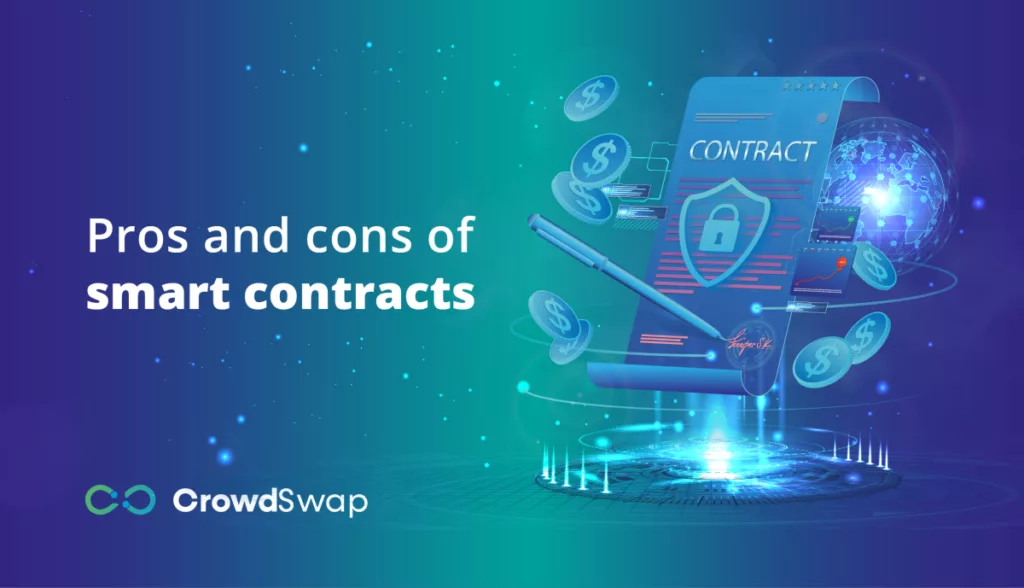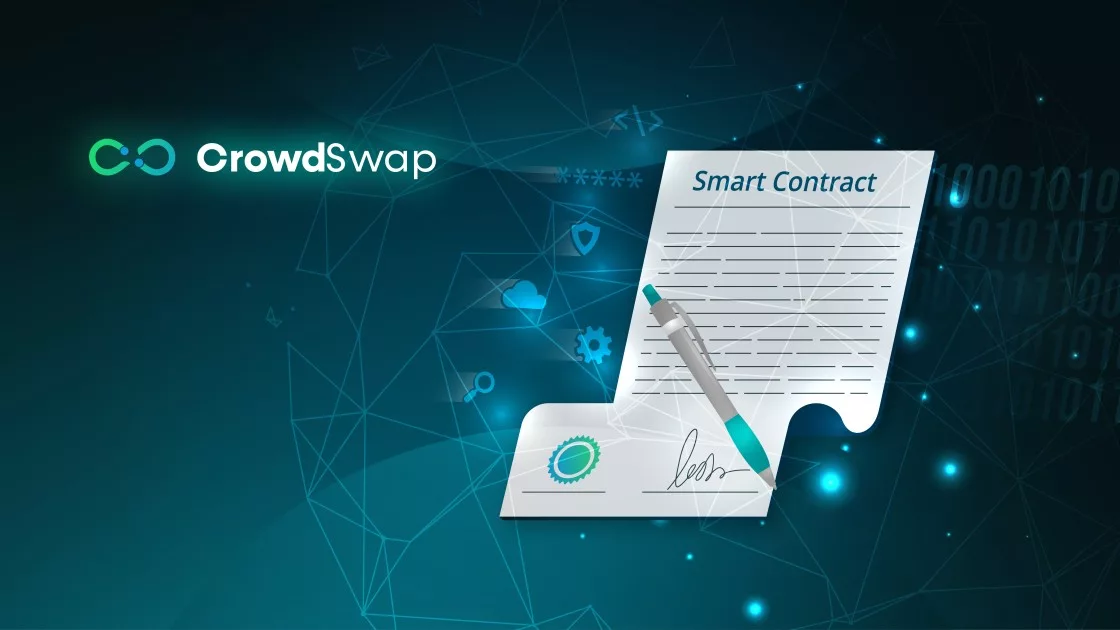Imagine this scenario: On a cool fall evening in 2019, Jack and his son, Brad, were enjoying a drink in their backyard. They were chatting about Brad’s relationship with his girlfriend, Jessica. That night, Jack made a promise to his son: he would give him a sum of money on his wedding day. They wrote down this promise in a special kind of contract.
Sadly, Jack passed away before Brad and Jessica got married. However, when their marriage was registered at the city hall, the money was automatically transferred to Brad’s account. How did this happen? It was because of the special contract they used—a smart contract!
The smart contract had access to Jack’s account and was programmed to transfer the money once it confirmed Brad’s marriage. Even though Jack was no longer around, the promise was fulfilled without needing a banker, a notary, or even a will. The smart contract made everything happen smoothly, just as planned.
That’s the magic of smart contracts—they work automatically and efficiently, ensuring that agreements are honored without any hassle.
Curious about how this all works? Let’s explore further to understand what is a smart contract.
The Birth of Smart Contracts
The term “smart contract” was made by computer scientist Nick Szabo in 1993, long before the technology to implement them was available. Szabo envisioned smart contracts as a way to improve traditional legal contracts by embedding them into digital code. He believed that using digital security mechanisms could make contracts more efficient, transparent, and secure.
To illustrate his idea, Szabo used the example of a vending machine. A vending machine operates on a simple contract: if a buyer inserts the correct amount of money and makes a selection, the machine dispenses the chosen product. This process happens automatically and without the need for an intermediary. The machine follows the terms of the “contract” seamlessly, providing a straightforward analogy for how smart contracts could work in more complex scenarios.
Szabo’s vision was that smart contracts could automate and enforce agreements in various fields, from finance to real estate, eliminating the need for middlemen and reducing the potential for fraud. By programming the terms and conditions of a contract directly into code, smart contracts could ensure that all parties fulfill their obligations without the need for trust or third-party verification.
This groundbreaking concept laid the foundation for the development of blockchain technology and decentralized platforms, where smart contracts now play a crucial role. They execute predefined actions when specific conditions are met, enabling a wide range of applications from decentralized finance (DeFi) to supply chain management.
Szabo’s foresight into the potential of smart contracts has transformed how we think about agreements and transactions in the digital age, paving the way for innovations that are still unfolding today. This insight helps us understand what is a smart contract and its transformative impact on various industries.
How does a smart contract work?
Smart contracts can be likened to a vending machine for contracts. Traditionally, you would need to go to a lawyer or notary, wait for them to issue a document, and pay for their services. With smart contracts, however, you can simply insert a cryptocurrency token into the distributed ledger, and your certificate or document will be automatically generated. Smart contracts not only establish rules and prescribe penalties but also ensure that these rules are enforced unconditionally.
What is a smart contract? Essentially, smart contracts are computer protocols that facilitate and verify transactions through mathematical algorithms. When creating a smart contract, the parties involved outline the terms of the transaction and the penalties for non-compliance, then sign the contract digitally. The smart contract monitors whether the conditions are met and makes decisions accordingly, such as completing the transaction, imposing a fine, or restricting access to assets.
A smart contract executes all or part of an agreement automatically and is stored on a blockchain-based platform. The execution is carried out by a computer running code that has been converted from legal text into an executable program. This event-driven program operates on a distributed, decentralized ledger, managing asset transfers and recording them on the ledger.
Technically, a smart contract is a program code with “if-then” logic.
Before drafting a smart contract, the parties must develop a legal framework for automating the proceedings and determine the contract’s scope. Creating a smart contract requires close collaboration between programmers and lawyers. Lawyers alone cannot translate complex legal agreements into a smart contract format. As a program, a smart contract can only be implemented by technology specialists, making it a joint effort between legal and technical experts.

Pros and cons of smart contracts
Advantages of Smart Contracts
Smart contracts offer several key advantages:
- Elimination of Intermediaries: There is no need for intermediaries, such as lawyers or notaries, to facilitate transactions. This reduces the reliance on third parties and their associated costs.
- Cost Reduction: By removing the need for a third party, smart contracts significantly lower transaction costs.
- Speed of Execution: Transactions are executed much faster than traditional methods since the process is automated and does not require manual intervention.
- Security: Contracts stored on the blockchain are exceptionally secure. They are virtually impossible to lose, and the decentralized control process greatly reduces the risk of manipulation or tampering. Additionally, the immutable nature of smart contracts makes them highly resistant to hacking. Once a smart contract is deployed on the blockchain, its code is replicated across numerous network nodes, making it nearly impossible to alter or remove.
- Automation of Payments: Smart contracts can automate payments such as royalties, ensuring that right holders receive their due without delay. This automatic distribution of income among stakeholders can help eliminate disputes. Once the agreement’s terms are met, assets are exchanged immediately.
- Transparency: All transactions and contract terms are recorded on the blockchain, making them transparent and easily verifiable by all parties involved.
- Accuracy: Automated contracts reduce the chance of human error in the execution of terms, ensuring that all conditions are met precisely as programmed.
- Accessibility: Smart contracts can be accessed and executed from anywhere in the world, providing global reach and convenience.
- Programmability: The flexibility of smart contracts allows for the creation of complex arrangements and conditions that can be tailored to specific needs and use cases.
Disadvantages of Smart Contracts
Despite their advantages, smart contracts also have some drawbacks:
- Need for Oracles: An oracle is a trusted source that provides external real-world data to a blockchain to trigger smart contract execution. For smart contracts to be fully functional, “oracles” are needed. Oracles connect the blockchain to the real world, providing external data that triggers contract execution. However, unreliable or incorrect information from oracles can undermine the benefits of smart contracts.
- Error Correction: The blockchain lacks clear mechanisms to correct errors in contract code. If an error is discovered after a smart contract is concluded, the nature of the distributed ledger makes it difficult to correct. This can lead to financial losses for the involved parties.
- Complexity: Designing and deploying smart contracts requires specialized knowledge in both programming and the specific blockchain platform being used. This complexity can be a barrier for widespread adoption.
- Legal and Regulatory Uncertainty: The legal status and enforceability of smart contracts can vary by jurisdiction. Regulatory frameworks are still evolving, which can create uncertainty for users and developers.
- Scalability Issues: Blockchain networks can face scalability issues, leading to slower transaction times and higher costs when the network is congested. This can impact the efficiency of smart contracts.
- Security Vulnerabilities: While smart contracts are secure, they are not immune to bugs or vulnerabilities in the code. Exploits can lead to significant financial losses, as seen in several high-profile blockchain incidents.
- Immutability: While immutability is an advantage in terms of security, it can also be a disadvantage. Once a smart contract is deployed, it cannot be altered. This means any errors or unintended consequences are permanent.
- Privacy Concerns: Since transactions on a blockchain are transparent, sensitive information encoded in a smart contract can be exposed to the public, raising privacy concerns.
Smart contracts are a powerful tool with significant benefits, but they also come with challenges that need to be addressed to fully realize their potential. Properly managing these issues is crucial for the widespread adoption and success of smart contract technology.
How to Create a Smart Contract
Creating a smart contract involves several steps. First, you’ll need a blockchain platform that supports smart contracts, like Ethereum. Next, write the smart contract code using a programming language such as Solidity. After writing the code, test it thoroughly on a test network to ensure it functions as expected. Once testing is complete, deploy the contract to the main blockchain. Finally, interact with the smart contract through a blockchain wallet or application. Remember, collaborating with experienced developers can help ensure the contract is secure and efficient.
Smart contract platforms
Smart contracts were first implemented in the cryptocurrency world by Ethereum, leading to the creation of decentralized applications (dApps). This successful adoption has inspired several leading cryptocurrencies to develop their own smart contract platforms.
Smart contracts showcase the potential of blockchain technology, although their full capabilities are still being explored. For widespread day-to-day use, we need faster and more cost-effective solutions. These advancements are crucial for the growth of the DeFi industry. Here are some of the top smart contract platforms:
- Ethereum (ETH): Ethereum, known as a “programmable blockchain,” was the first cryptocurrency to feature smart contracts. It powers the majority of decentralized applications, including around 80% of DeFi applications worldwide.
- Solana (SOL): Solana is one of the fastest cryptocurrencies, processing 50,000 transactions per second (TPS). In comparison, Ethereum handles between 15 to 45 TPS, making Solana significantly faster.
- Polkadot (DOT): Polkadot uses parachains, which are like mini blockchains running parallel to the main blockchain, allowing for faster transaction processing. Smart contracts on Polkadot run on these parachains, not on the main blockchain.
- Algorand (ALGO): Algorand offers low cost, scalability, and speed without compromising security. One advantage of Algorand’s smart contracts is that they can be written in various programming languages, making them accessible to a wider range of developers.
- Cardano (ADA): Cardano is a research-driven blockchain platform focused on security, sustainability, and scalability. Its smart contract functionality, introduced through the Alonzo upgrade, allows developers to create complex decentralized applications.
- Binance Smart Chain (BSC): BSC is known for its high performance and low transaction fees. It is compatible with the Ethereum Virtual Machine (EVM), making it easy for developers to port their applications from Ethereum to BSC.
- Tezos (XTZ): Tezos is designed for self-amending and on-chain governance, which allows it to evolve without hard forks. It supports smart contracts and decentralized applications with an emphasis on security and formal verification.
- Avalanche (AVAX): Avalanche offers high throughput and low latency with its unique consensus protocol. It is designed to be scalable and interoperable, supporting a wide range of decentralized applications and smart contracts.
These platforms highlight the diverse approaches to enhancing the functionality and efficiency of smart contracts, driving innovation in the blockchain and DeFi space.
Trade Effortlessly
Ready to dive deeper? Our crypto exchange is simple and user-friendly, making trading a breeze
Final words
Smart contracts are currently in high demand, primarily due to their ability to implement DeFi projects on a large scale. However, this is just the beginning; the true potential of smart contracts extends far beyond what we see today. What is a smart contract? It’s a transformative technology that is set to revolutionize numerous industries.
In the future, we can expect to see even more innovative applications emerge. We are still only scratching the surface of what smart contracts and decentralized applications can achieve. Companies and even countries are already experimenting with this technology, using smart contracts for various tasks, including digital identity verification, supply chain management, insurance, data storage, and more.
As our understanding and technology evolve, the possibilities for smart contracts will continue to expand, unlocking new opportunities and efficiencies across numerous industries. The future of smart contracts is bright, and their impact will be profound.
FAQ
What is a smart contract?
A smart contract is a self-executing contract with the terms of the agreement directly written into code. It automatically enforces and executes the terms once certain conditions are met, without the need for intermediaries.
How do smart contracts work?
Smart contracts work by running on blockchain platforms. They use predefined “if-then” logic to execute actions automatically when specific conditions are met, ensuring agreements are honored efficiently and securely.
What are some common uses of smart contracts?
Smart contracts are used for various tasks, such as digital identity verification, supply chain management, insurance, data storage, automated payments, and decentralized finance (DeFi) applications.













